Online advertising is a billion dollar a year industry, yet one that we’ve found people have strong opinions on. Invisibly surveyed 2240 individuals to better understand people’s general knowledge of how online advertising works, and to see whether they like getting targeted online ads.
Highlights
- 84% of respondents said that they know what browsing cookies are.
- 75% of respondents said they “like” the idea of companies needing their consent to track them.
- 70% of respondents don’t agree with companies tracking them for marketing purposes.
- 44% of respondents said that they use an ad blocker to prevent companies from targeting them. Only 6% of people said they don’t use an ad blocker because they like ads targeting them.
- Men were more knowledgeable of how online ads work than were women or non-binary respondents.
Results
Invisibly asked people if they knew how internet browsing cookies work, to which 84% responded yes, whereas 16% either didn’t know or were unsure. The number of people who don’t know increased with the age of respondents, and also, men were 23% more aware than women.
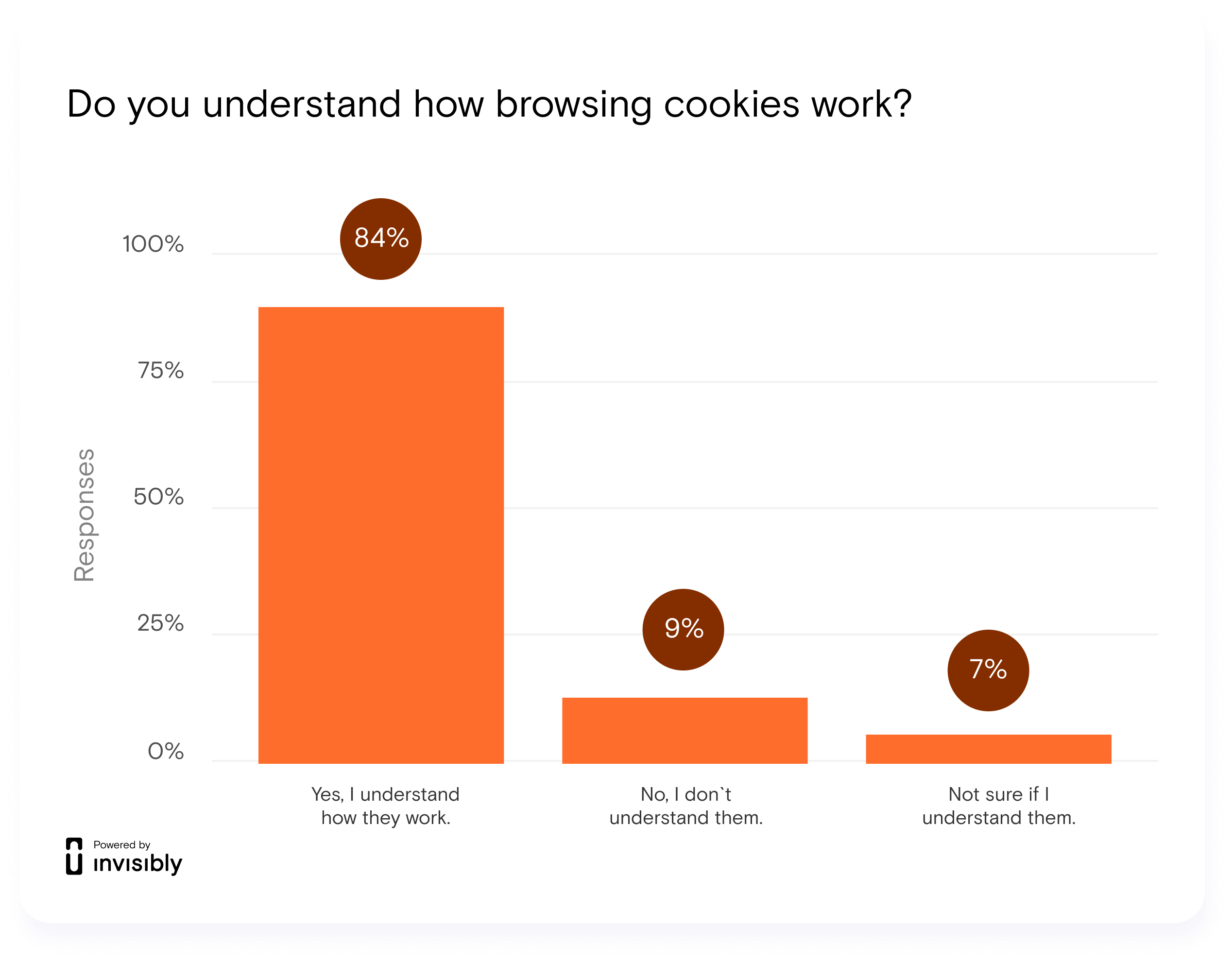
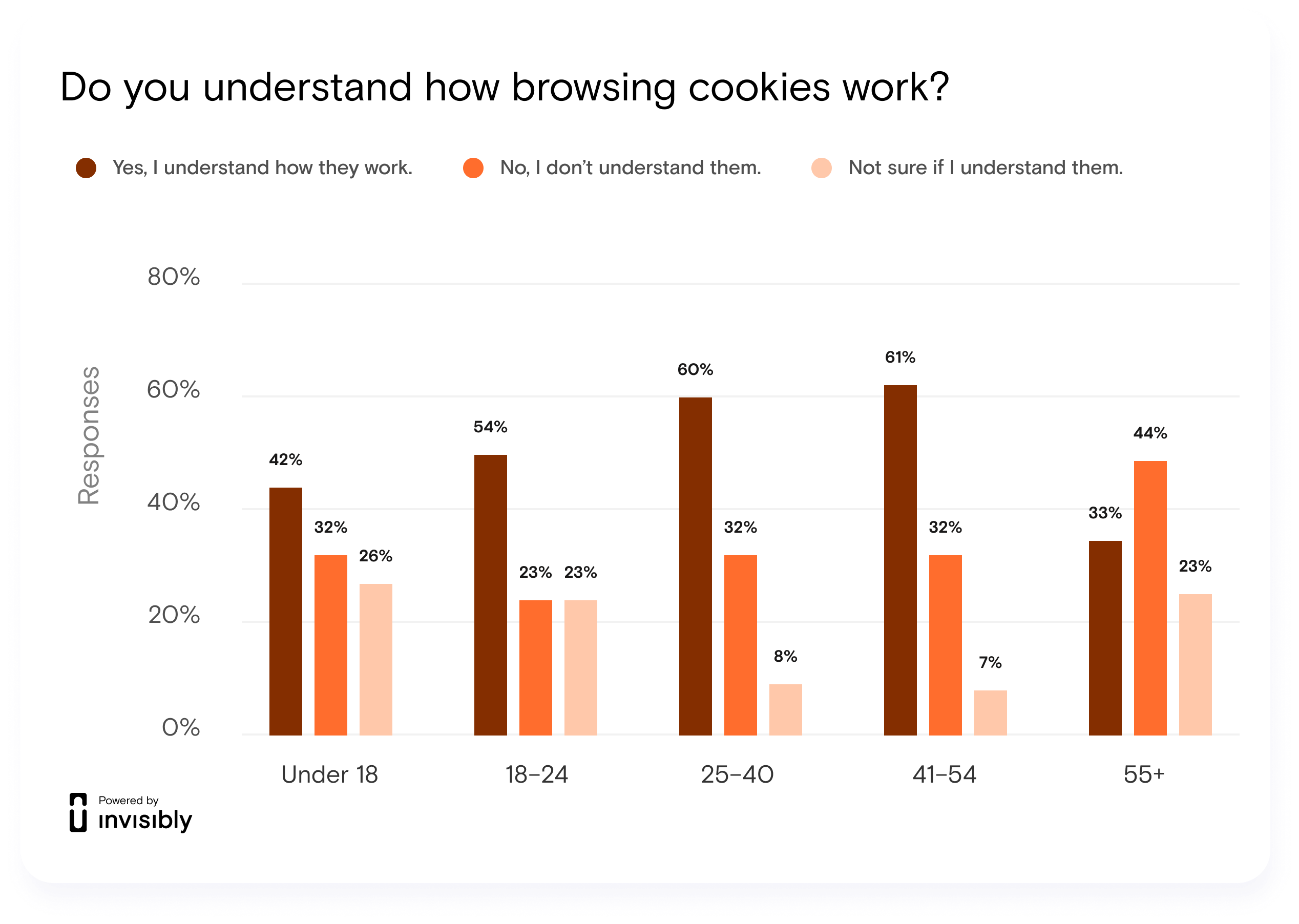
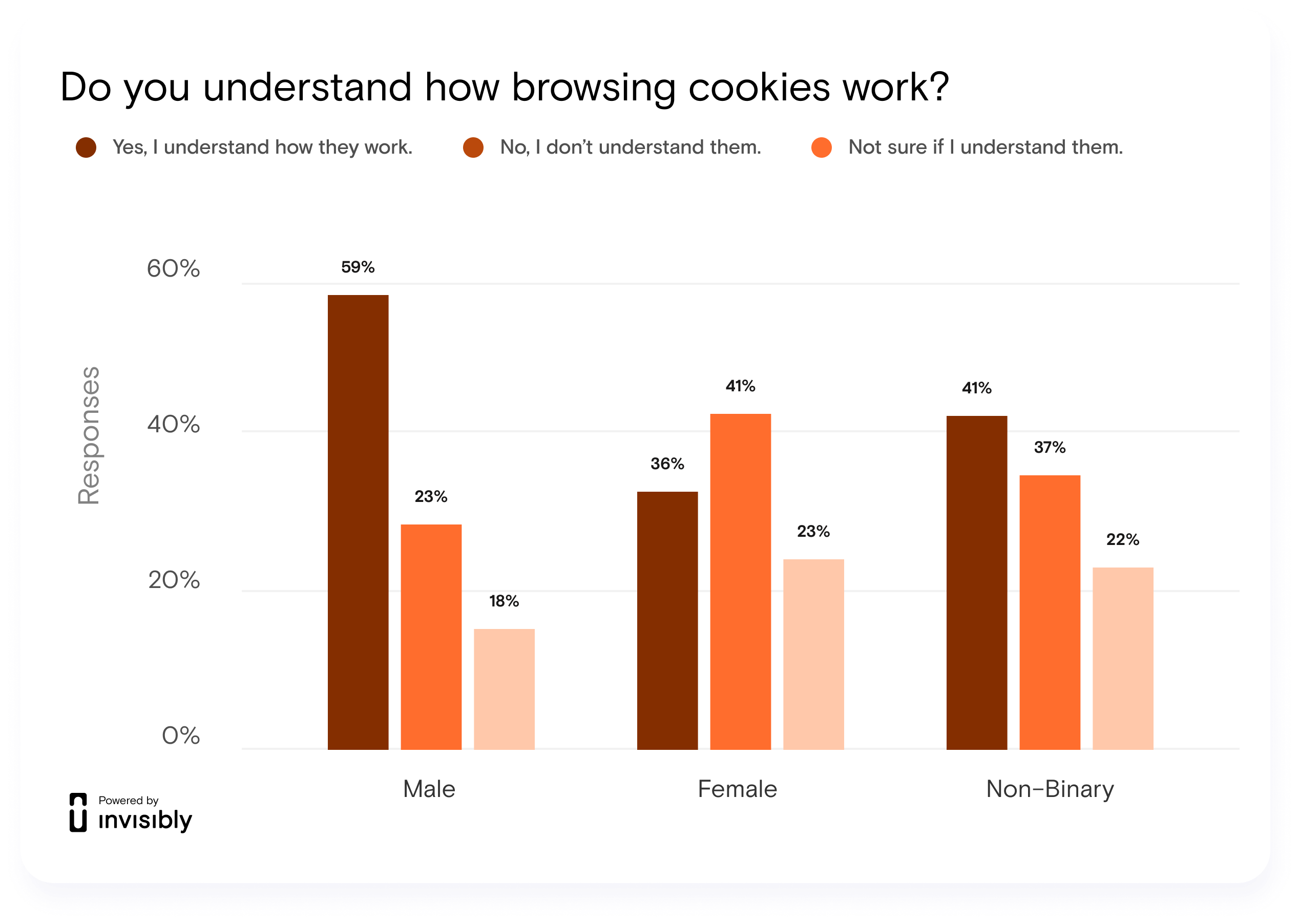
Invisibly asked people how they feel about companies needing consent to track you online, and 75% of respondents would prefer that companies have direct consent, whereas 25% don’t care either way. This stayed a consistent trend across age and gender.
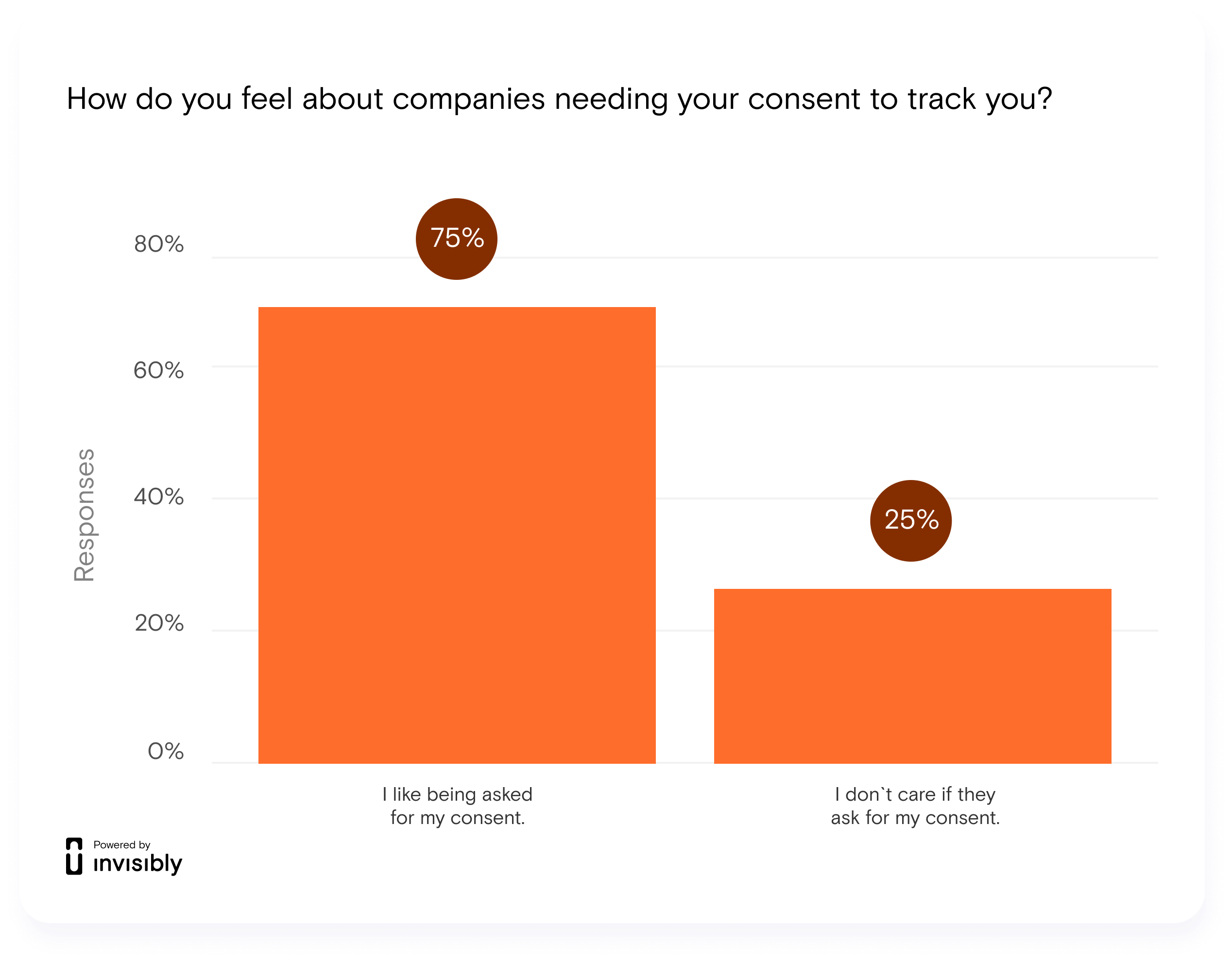
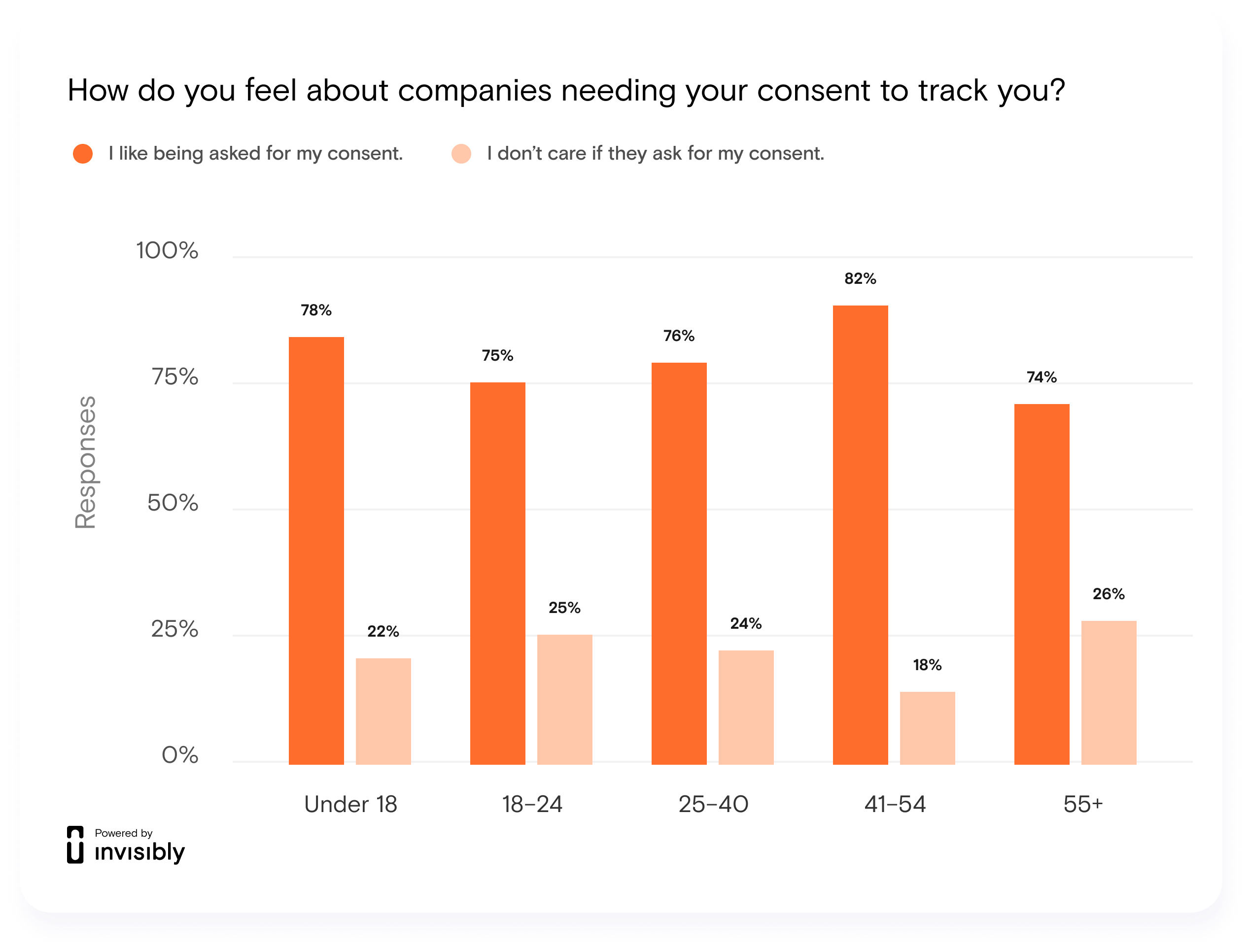
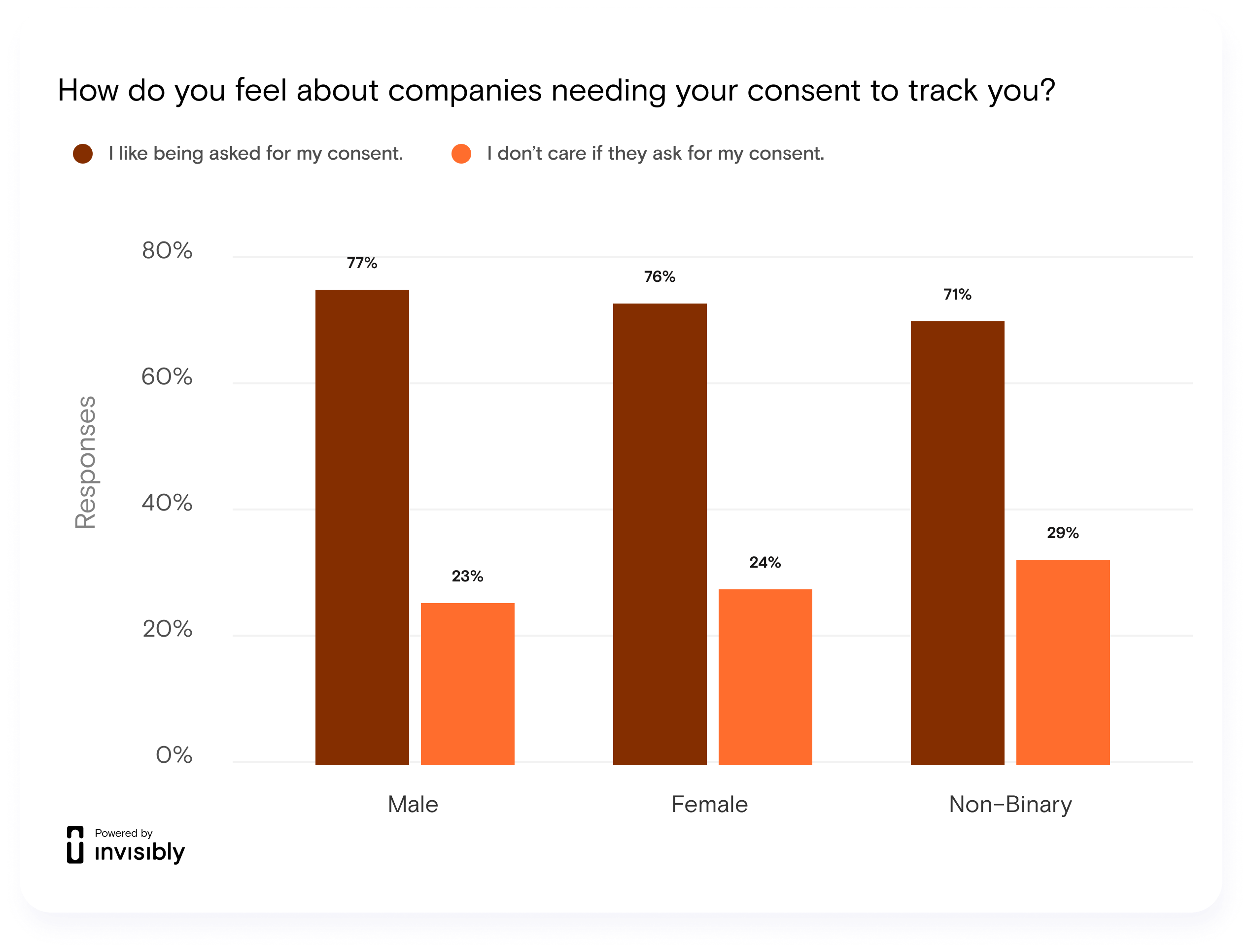
When asked directly whether people agree with companies tracking them for marketing purposes, 70% of respondents did not agree, whereas only 17% did, and 13% did not care either way. Men were more agreeable to online targeting than were women, with 27% of men agreeing compared to only 7% of women.
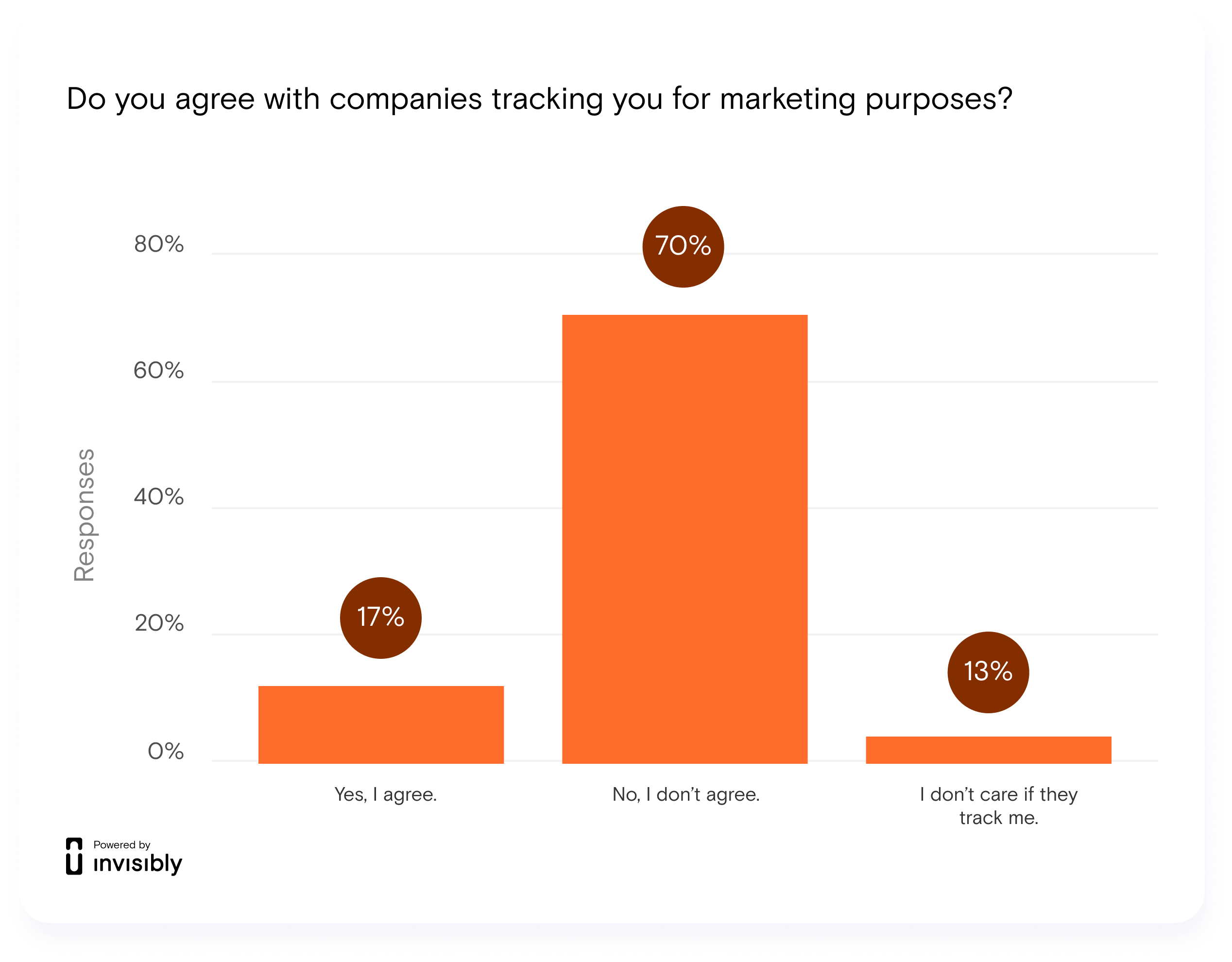
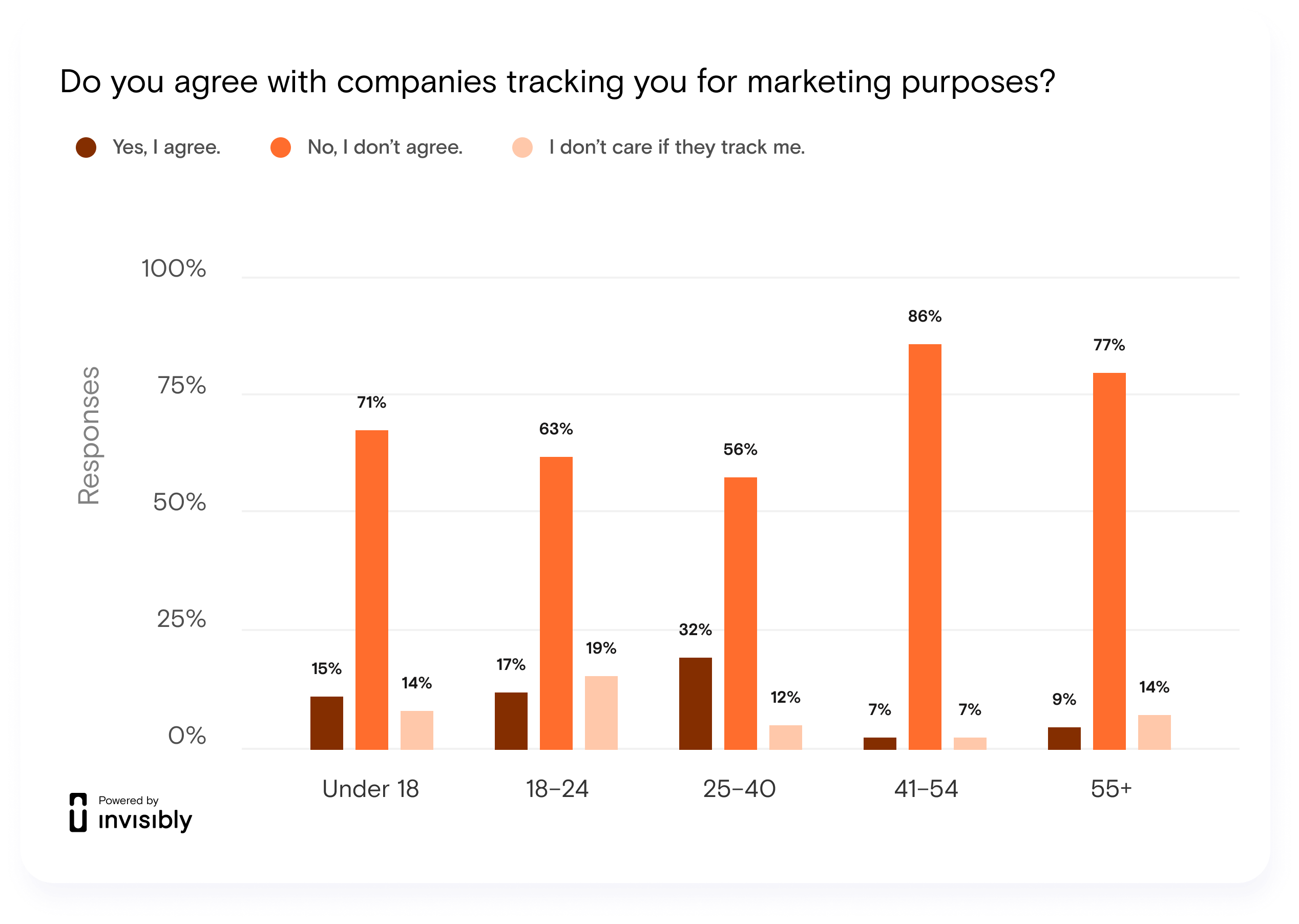
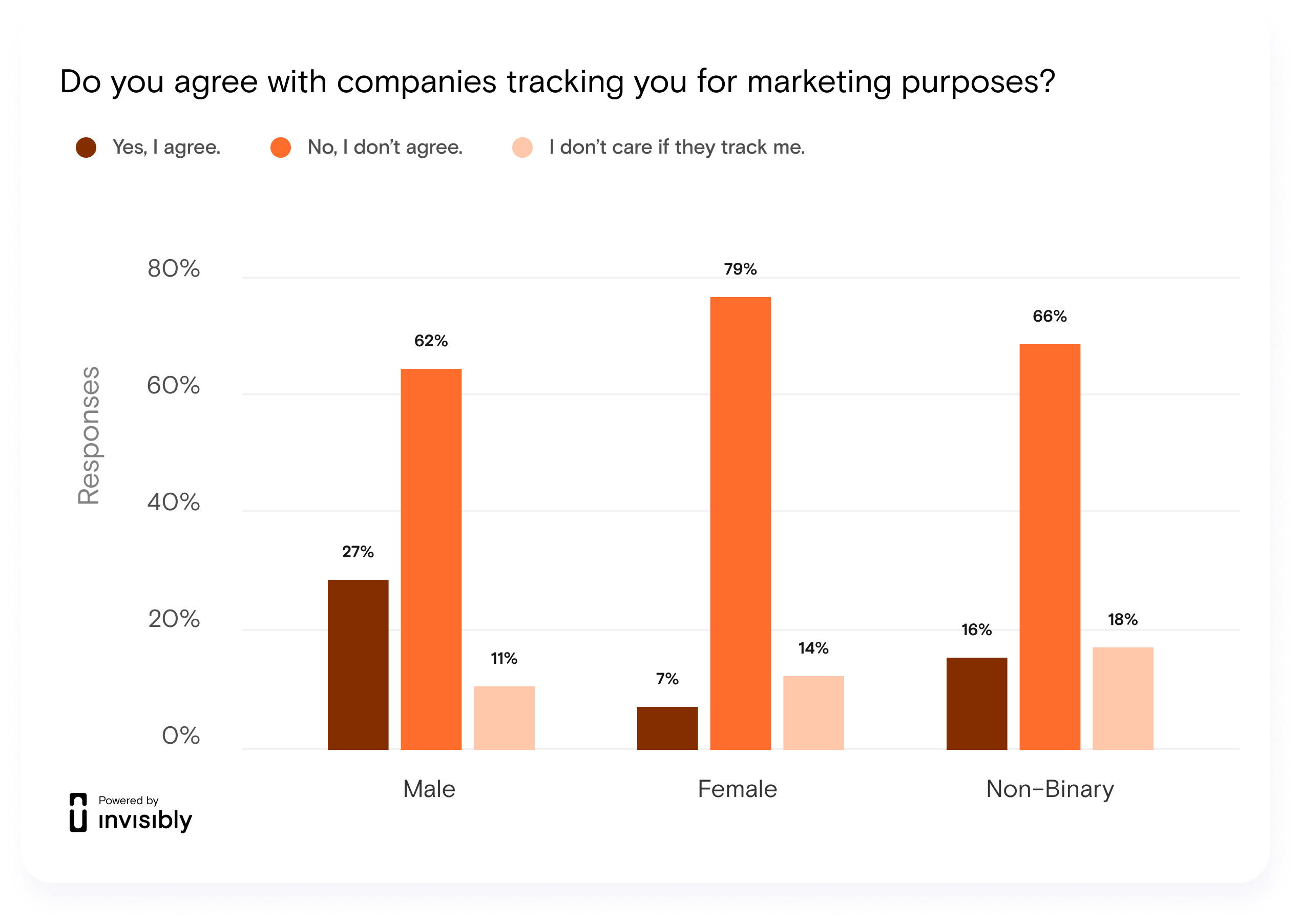
Survey results showed that despite the fact that only 6% of people said they like targeted online ads, only 44% reported using ad blockers to prevent them.
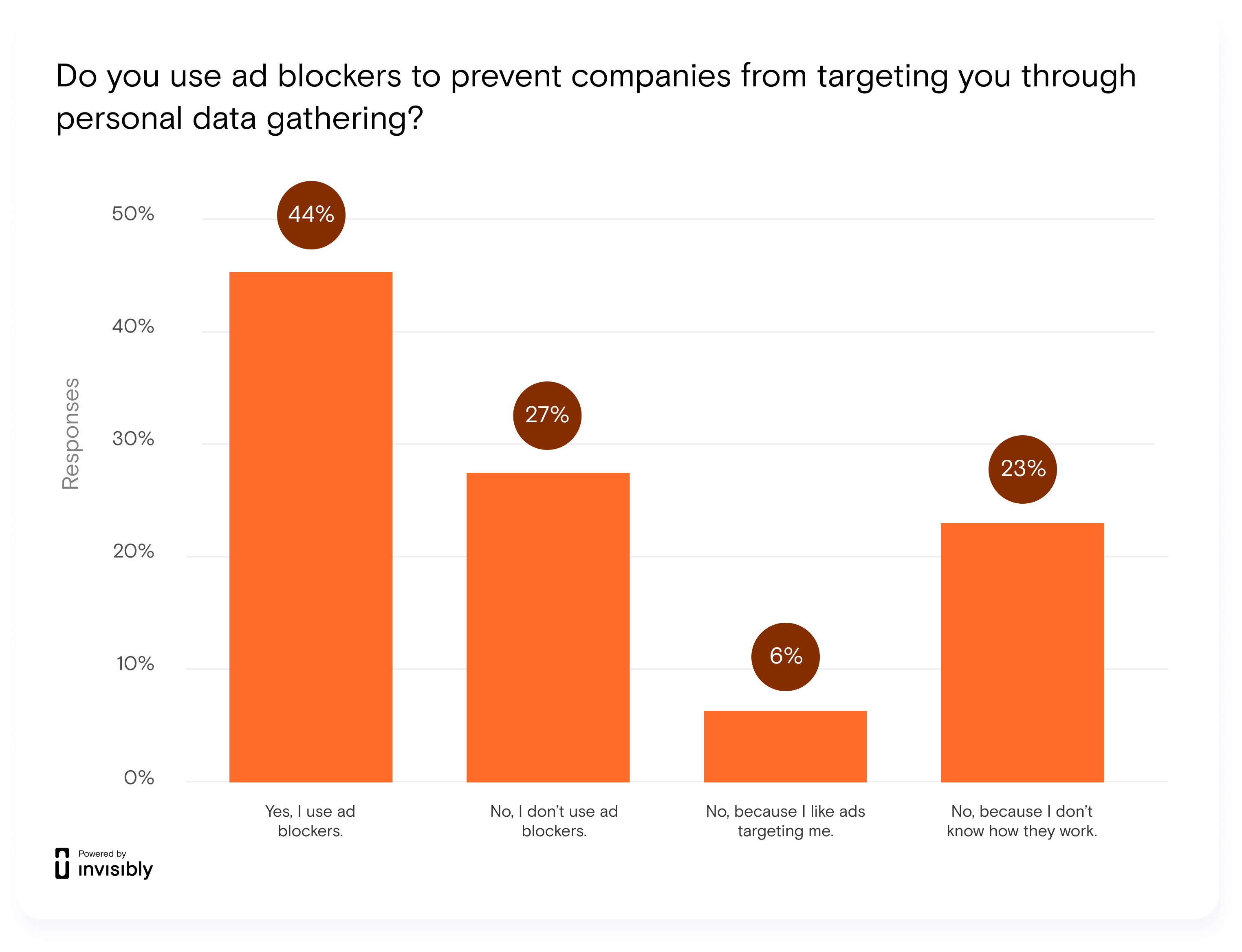
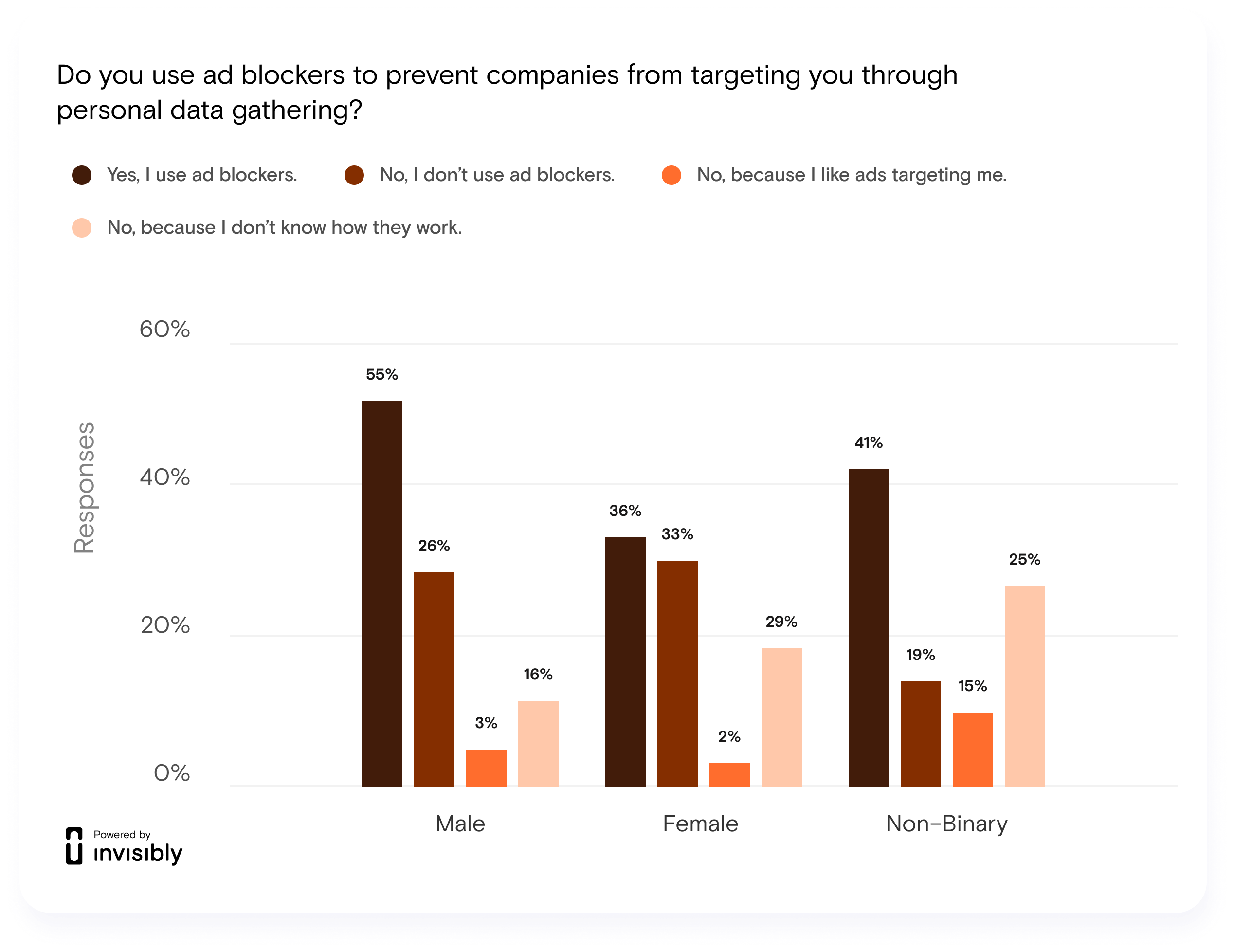
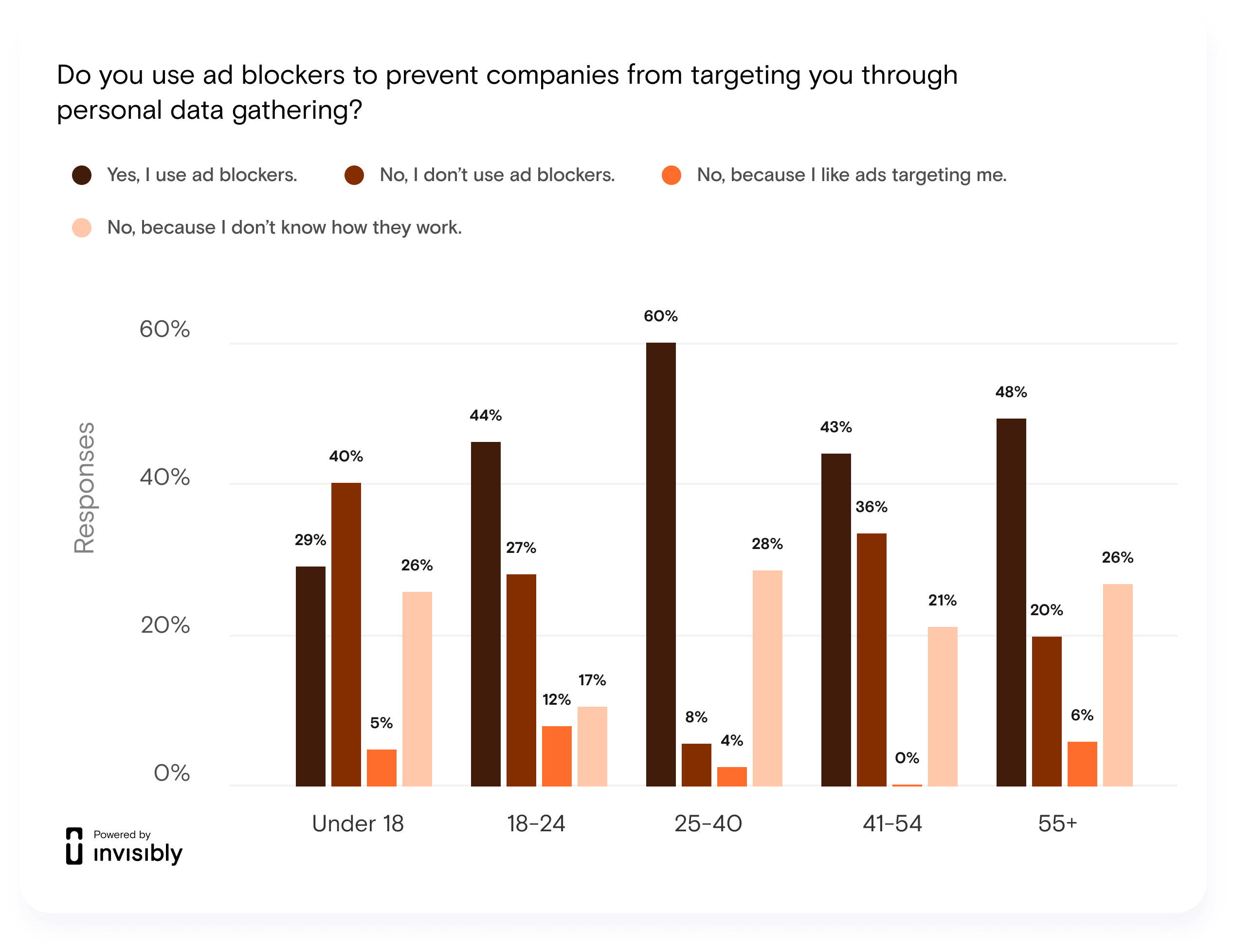
Respondents were spread across all age groups, from under 18 to over 55.
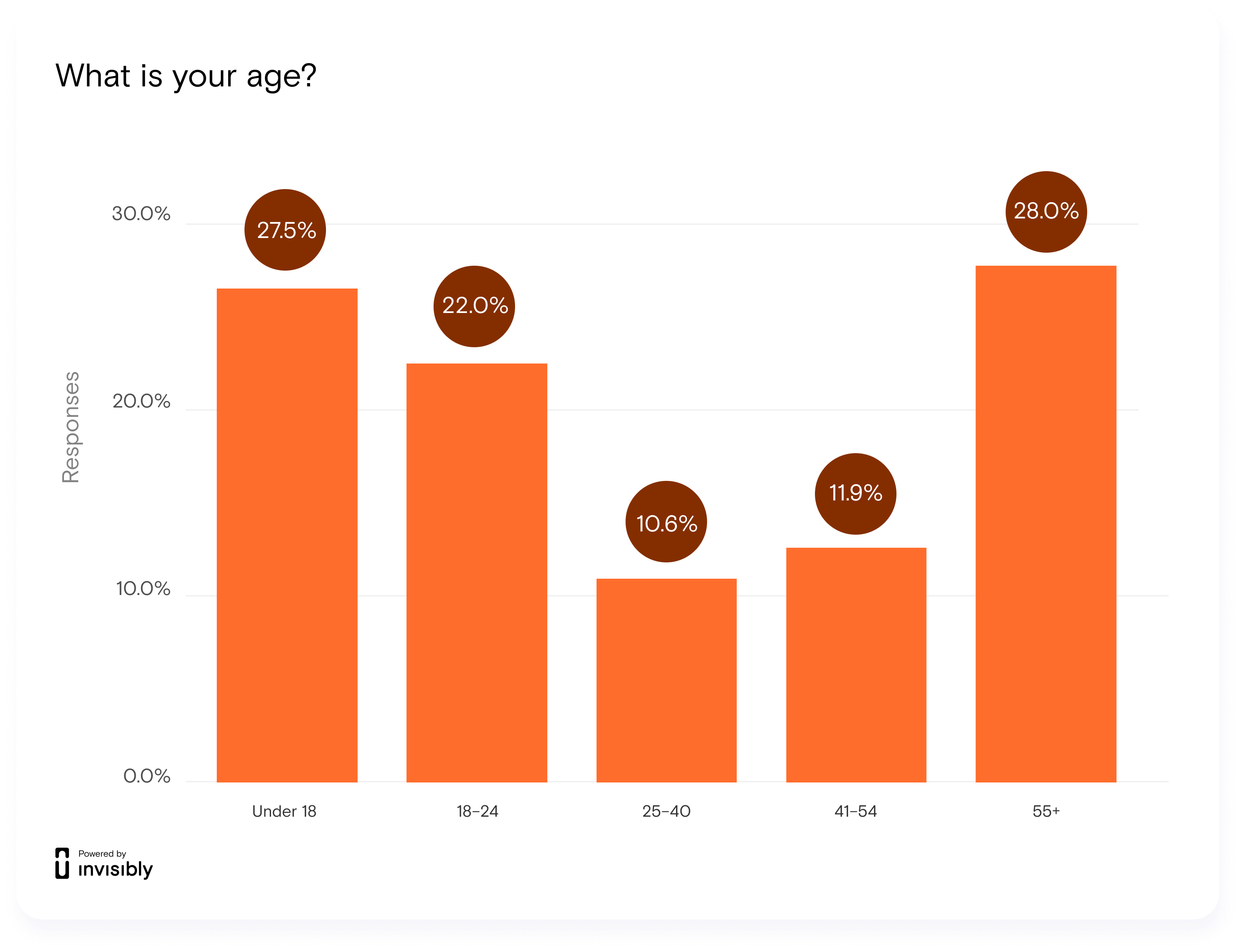
The ProcessFrom June 29th to July 1st, Invisibly used Realtime Research to survey 2240 individuals online across all age groups to understand their knowledge of online advertising, and gauge their opinions on the topic.
Discussion
Based on these survey results, it’s clear that most people don’t like targeted online ads. It was interesting to learn that men had a greater understanding of how ads work, and how to prevent them through ad blockers, over women or non-binary respondents.
It was surprising how much women did not like targeted ads, given that statistically speaking, more ads target female shoppers than male shoppers. This should serve to caution online advertisers of a few things: how they collect their data, how accurate it is, and how frequently it’s being used. These survey results suggest people are growing wary of how online advertising works, and how often the data used is inaccurate, causing more and more people to want take back control of their data altogether.
The results also provide a strong use case for growing the use of AI and machine learning for better understanding people’s real attitudes and behaviors, which could prove much more accurate, and relevant, in the advertising industry than collecting sensitive personal data that most people clearly don’t approve of. We’re eager to see how online advertising evolves in the coming years, given the vast changes in attitudes to consumer privacy and the evolution of better technology.
Invisibly Realtime Research surveys differ from traditional online surveys in that the questions are shown to the user on web pages. Unlike Google Surveys, which block access to content until the questions are answered, Realtime Research surveys are optional, thus ensuring that participants are responding voluntarily.
No related posts.















